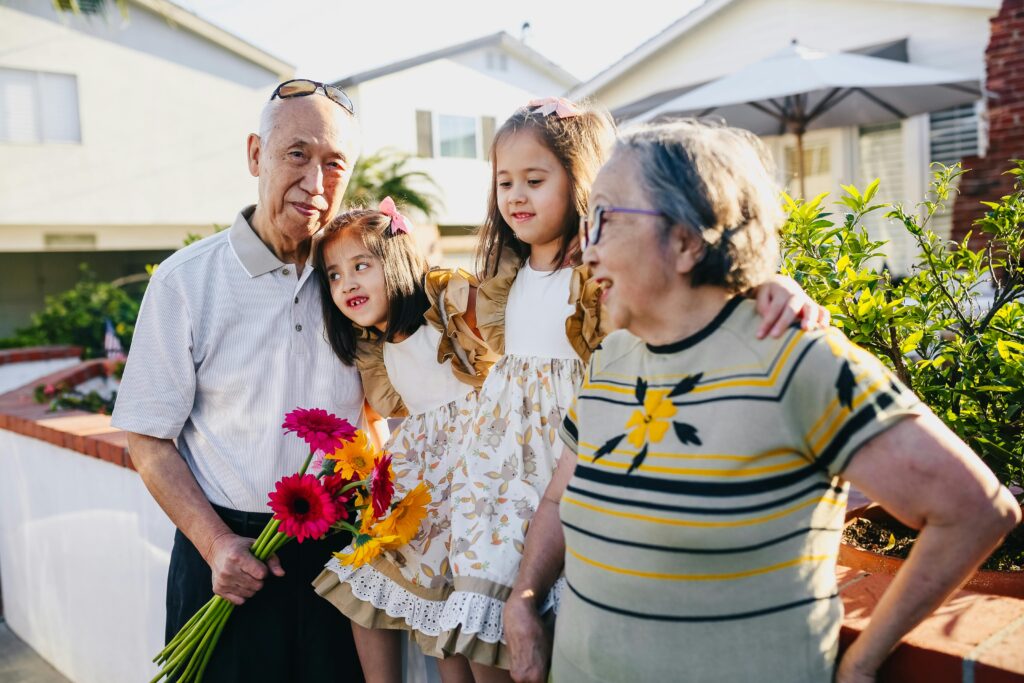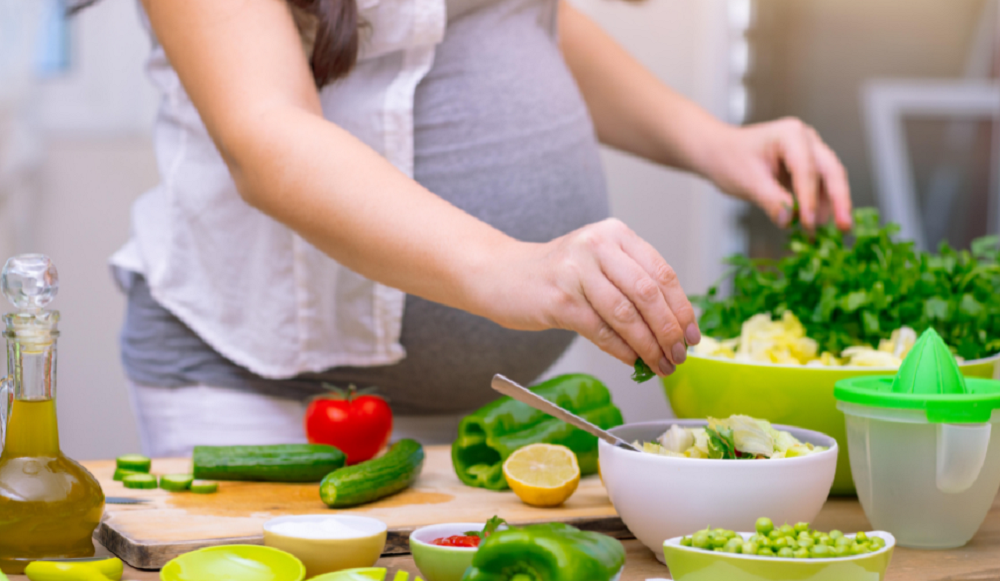Grandparents have always been a fundamental part of family dynamics, often serving as pillars of wisdom, love, and guidance for younger generations. But in today’s fast and busy lives, the traditional role of grandparents is evolving. Many families are stepping into roles that can range from full-time caregivers to occasional babysitters and even boundary pushers. In short, family dynamics are changing!
This shift has left modern parents wondering: Are grandparents a source of support or a slippery slope toward spoiling children? This blog explores the intricate balance of grandparenting, provides the role of grandparents, and how they pave the way for healthy, harmonious family dynamics.
Table of Contents
ToggleThe Supportive Role of Grandparents
Grandparents can play a profoundly positive role in a child’s life, one that extends far beyond a quick babysitting gig or gifts on birthdays. Their involvement has been shown to provide children with emotional stability, life lessons, and deeper connections to their family identity.
Emotional Anchors for Children
Grandparents are often a safe harbor for children. Their unconditional love and support can provide a sense of stability, especially during times of family stress. When parents are busy juggling work responsibilities, the role of grandparents often is to step in to fill emotional gaps and offer companionship, undivided attention, and warmth.
Passing Down Family Heritage
By sharing family stories, traditions, and experiences, grandparents help children connect with their roots. Learning about the struggles and successes of previous generations can help kids better understand their place in the family legacy, building a sense of pride and resilience.
The Power of Intergenerational Relationships
Studies suggest that intergenerational interactions enrich children’s lives in unique ways. According to the American Grandparents Association, children with active grandparent relationships tend to have higher emotional intelligence and a deeper understanding of empathy. The connection is meaningful not just for children but for grandparents as well, who often report higher levels of well-being when involved in their grandchildren’s lives.
Role of Grandparents – The Spoiling Debate
“Just one more cookie won’t hurt!” A line that many parents hear (or fear) from grandparents. It’s no secret that grandparents love to indulge their grandchildren. But where does the charm of spoiling end, and where does overindulgence begin?
What’s Wrong with “Spoiling”?
Spoiling is often seen as harmless. What’s the big deal about some extra toys or time before bed, right? However, experts caution that frequent overindulgence can set unrealistic expectations for children and undermine parental authority. This isn’t to villainize the grandparents but to acknowledge the potential challenges of conflicting approaches to discipline and limits.
The Fine Line Between Love and Limits
Grandparents’ desire to spoil often stems from pure love and a desire to bond. Their perspective is shaped by years spent raising kids of their own, often under stricter guidelines than today’s parenting culture allows for. The key? Balancing generosity with the need to respect a parent’s boundaries.
The Perception Gap
Interestingly, many grandparents don’t see themselves as spoilers. A 2017 survey by AARP found that while 62% of parents felt grandparents spoiled their children, only 28% of grandparents agreed. This perception gap highlights the need for open communication about limits and expectations.
Insights from Experts
The debate over the role of grandparents isn’t just anecdotal; child development experts have explored how different levels of grandparent involvement influence children’s development.
Positive Impacts
Dr. Glen H. Elder Jr., a sociologist and expert on life course studies, has written extensively about the benefits of multigenerational support systems. His research demonstrates that children who grow up with nurturing and involved grandparents often fare better academically and socially. These kids also exhibit greater resilience when faced with change or hardship.
Potential Downsides
That said, experts also emphasize the importance of consistency in parenting styles between parents and grandparents. According to Dr. Nancy Darling, a psychology professor at Oberlin College, conflicting rules, such as differing stances on bedtime or dietary habits, can confuse children and create friction within families. A lack of parental-grandparent alignment can shift the household dynamic in counterproductive ways.
Navigating Boundaries
So how can parents and grandparents ensure that their relationships remain productive and free of tension? It starts with clear expectations and mutual respect.
Tips for Parents
- Set Clear Guidelines: Be transparent about what you expect when grandparents interact with your children, from discipline to dietary preferences.
- Communicate Respectfully: Approach sensitive topics as calmly and constructively as possible to avoid defensiveness.
- Acknowledge Their Contributions: Make it a point to show appreciation for everything grandparents do—it helps smooth the way for respectful dialogue.
Tips for Grandparents
- Respect Parental Rules: Even if you disagree with some of the guidelines, respecting parents’ authority strengthens relationships.
- Find Your Role: Focus on activities where you can be invaluable—like sharing hobbies, storytelling, or teaching life skills.
- Remember It’s a Partnership: Approach your role not as a competing authority but as a complementary one.
The New Normal
The modern definition of the role of grandparents is as diverse as families themselves. With more dual-income households and single parents, many grandparents find themselves more involved in daily caregiving than they might have imagined. But “helping hands” don’t come with a universal handbook.
Be Flexible and Evolve
Traditional grandparenting—the occasional weekend visit, complete with spoiling, may not fit the needs of every family today. Instead, grandparents and parents must adapt their roles to accommodate the unique dynamics of the modern household. Whether it’s grandparents stepping into part-time caregiver roles or parents giving space for indulgence, flexibility is vital.
Building a Shared Vision
Think of grandparenting as a partnership with shared goals. When parents and grandparents work together to create a stable, loving environment, children benefit the most; and isn’t that the ultimate goal?
Building Harmony Across Generations
Grandparents hold a wealth of love, experience, and value that can enrich a child’s life in remarkable ways. By setting clear boundaries, understanding each other’s perspectives, and nurturing open communication, families can strike a balance that supports everyone involved. You cannot deny the important role of grandparents in your child’s life.
Now it’s your turn to reflect on the role of grandparents in your family dynamics. Share your insights and stories in the comments below. And if this topic resonates with you, check out more of our family-focused blogs for helpful tips and insights.



10 thoughts on “The Role of Grandparents in Modern Families: Support or Spoiling?”
Your article helped me a lot, is there any more related content? Thanks!
Can you be more specific about the content of your article? After reading it, I still have some doubts. Hope you can help me.
I don’t think the title of your article matches the content lol. Just kidding, mainly because I had some doubts after reading the article.
I don’t think the title of your article matches the content lol. Just kidding, mainly because I had some doubts after reading the article.
Thank you for your sharing. I am worried that I lack creative ideas. It is your article that makes me full of hope. Thank you. But, I have a question, can you help me?
I don’t think the title of your article matches the content lol. Just kidding, mainly because I had some doubts after reading the article.
Your point of view caught my eye and was very interesting. Thanks. I have a question for you.
Your article helped me a lot, is there any more related content? Thanks!
Your point of view caught my eye and was very interesting. Thanks. I have a question for you.
Thank you for your sharing. I am worried that I lack creative ideas. It is your article that makes me full of hope. Thank you. But, I have a question, can you help me?